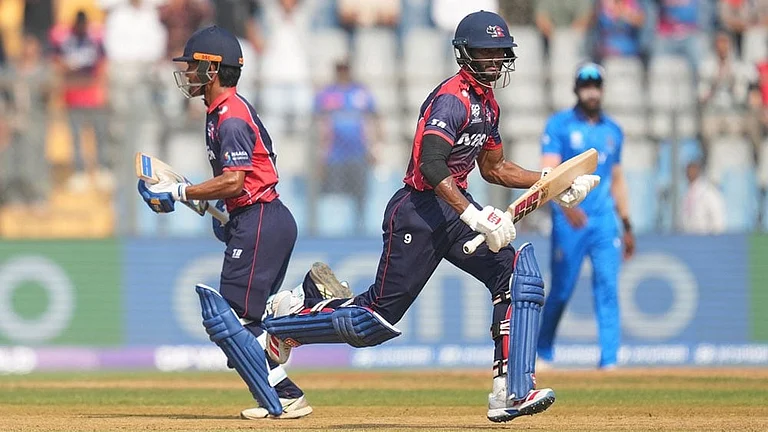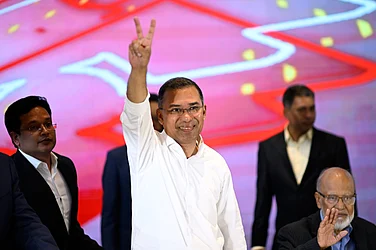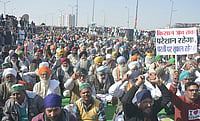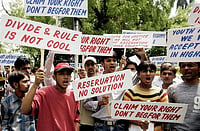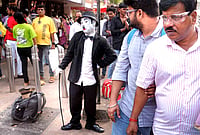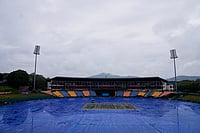Iranian chess player Sara Khadem, who received threats after competing abroad without hijab, has received Spanish citizenship, according to a report.
Khadem participated in a tournament in Kazakhstan in December 2022 without hijab. She received threats to her life after her act and had to move to Europe.
Khadem is among many prominent Iranian women, including sportspersons and actresses, who have appeared in public without hijab in recent time in defiance of the Iranian regime. Such acts of defiance began after the custodial death of Mahsa Amini in September 2022 that triggered monthlong nationwide protests.
Women in Iran are required by law to wear Islamic head covering called hijab. Amini, 22, was detained in September 2022 for an alleged violation of the law. She later died from alleged custodial torture. The death led to nationwide protests in which women often defied the hijab law.
Sara Khadem becomes Spanish citizen
Sara Khadem had moved to Spain in January after receiving threats to her life for not wearing hijab while competing in a tournament in Kazakhstan.
Khadem had participated in the FIDE World Rapid and Blitz Chess Championships in Kazakhstan without wearing a hijab. The acts came at the height of nationwide women-led protests after the death of Mahsa Amini.
As Khadem received threats to her life, she moved to Spain instead of Iran.
Spain’s Minister of Justice, Pilar Llop, said that there were "exceptional circumstances" in Khadem’s situation, announcing that the country’s Council of Ministers granted her "Spanish nationality through a naturalization letter", reported CNN.
Reuters reported at the time that Khadem's family members also received threats.
Reuters reported, "The source, who did not want to be named due to the sensitivity of the matter, said Khadem subsequently received multiple phone calls in which individuals warned her against returning home after the tournament, while others said she should come back, promising to ‘solve her problem’.The source also said Khadem's relatives and parents, who are in Iran, had also received threats, without giving further details."
In the wake of warnings, Khadem was also provided security in Kazakhstan, reported Reuters.
It reported, "The phone calls led to organisers deciding to provide security with the cooperation of Kazakh police, resulting in four bodyguards being stationed outside Khadem's hotel room, the source said."
After moving to Spain, Khadem has continued to play chess. In the recently-concluded Global Chess League 2023, Khadem joined the team Triveni Continental Kings and played a crucial rule in winning the tournament. Khadem, who joined as a substitute player, "secured a crucial victory, bringing the result to 10:9 [winning score] for the Kings", reported Sportstar.
Hijab law in Iran and women-led protests
Women in Iran are required to cover their heads with an Islamic head covering called hijab.
The hijab law was imposed on women in Iran after the Islamic Revolution of 1979 when the conservative Islamic clergy overthrew the liberal, pro-West monarchy and established an Islamic state under the Supreme Leader on the basis of a strict interpretation of Islamic law Sharia. Prior to the Islamic Revolution, women in Iran were free to wear or to not wear hijab.
Iran has a 'morality police' that enforces hijab laws. Besides the wearing of hijab, women are also required to not wear form-fitting or revealing clothes. The mingling of the opposite genders in public space is also regulated. It was in the morality police's custody that Mahsa Amini, 22, died.
Amini's death triggered months of nationwide protests in Iran that emerged as the biggest challenged the Iranian regime as well as the Islamic Revolution. In the largely women-led protests, women often tore off their hijabs, burnt hijab, walked around bare-headed, and cut their hair publicly in defiance of the Iranian regime.
In the crackdown, hundreds of protesters have been killed and many more have been detained. Though the protests have largely died down by now, reports say individual acts of resistance continue. The Iranian morality police is back on the streets with increased surveillance measure in place to check defiance.
Prominent Iranians defying the hijab law
Chess player Sara Khadem is one of the many prominent Iranians to defy the hijab rule in recent months.
In the months following Mahsa Amini's custodial death, several prominent sportswomen and actresses defied the hijab law. Fellow chess player Atousa Pourkashiyan also defied the hijab law at the Kazakhstan event.
Over the past one month, three well-known Iranian actresses have been convicted for defying the hijab law and have been handed varied sentences. The judges also diagnosed all three mentally ill, anti-family, and anti-social. The three actresses are Azadeh Samadi, Leila Bolukat, and Afsaneh Bayegan.
Samadi, 44, was convicted for wearing a hat instead of a hijab at a funeral. Bolukat, 42, was convicted for posting photos on social media without hijab. Bayegan, 61, was convicted for appearing in a film ceremony without hijab.
The Iranian diaspora abroad has also supported the movement in Iran. In May, Iranian-American model Mahlagha Jaberi wore a dress with a noose-styled collar at the Cannes Film Festival to raise the issue of executions in Iran. The country is infamous for executions after opaque trials for charges ranging from terrorism to blasphemy.
"We wanted to make a fashion statement to observe the glamour of Cannes, but more importantly, to bring media attention to the wrongful executions of Iranian people. Unfortunately, political statements are not allowed at the film festival and the security stopped me from showing the back of my dress, but the 'noose' meaning was well understood," said Jaberi in a post on Instagram.
In October 2022, Iranian competitive climber Elnaz Rekabi competed without a hijab in South Korea. NPR reported she received “a hero’s welcome” upon her return to Iran. Later, the Iranian regime demolished her family home.
In November 2022, an Iranian women's basketball team shared a photo without hijab with a caption “Women, Life, Freedom”. The slogan became a rallying cry for the women-led movement.
In November 2022, Iranian skater Niloufar Mardani received an award in Turkey without her hijab. As her photograph became public, the Iranian government condemned her act.
In April, a video of Iranian Iranian wushu player Zahra Kiani surfaced in which she was seen enacting martial arts moves in ripped jeans and a cap.







